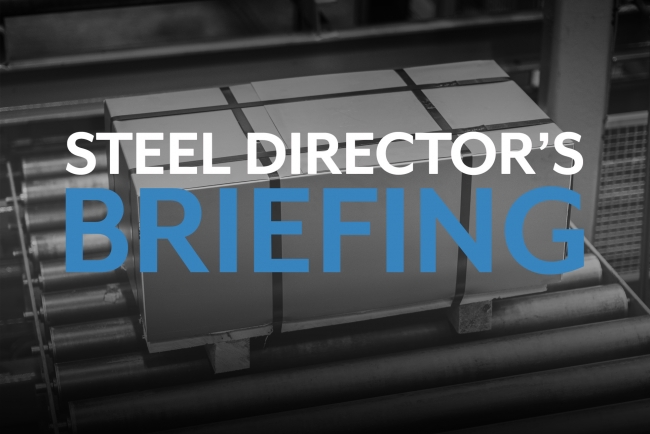Steel Director's Briefing - September 2023

As we enter the Autumn months, the steel industry finds itself navigating through another period of uncertainty. The market has witnessed price reductions, following the record high levels reached in the last two years. There is a substantial influx of higher-priced stock arriving in the UK, from outside of Europe. This scenario has been further complicated by a decrease in demand, across most sectors - including the automotive sector, despite some positive signs that the situation was improving.
The anticipated post-holiday upturn has yet to transpire, leaving the industry in a state of cautious equilibrium. Fluctuations in the pound v dollar exchange rate have introduced additional volatility, affecting price offers and contributing to market uncertainty. However, offer prices have stabilised, with indicators suggesting that further price reductions are unlikely. It would appear more likely that Mills will choose to reduce their steelmaking capacity.
European mills such as Tata and Arcelor have battled with manufacturing difficulties, and market conditions suggest that most if not all European mills are currently operating at a loss. Tata Steel UK, amidst these challenges, has announced a £1.25bn joint investment in electric arc furnace-based green steelmaking, in collaboration with the UK Government, marking a significant stride towards sustainable production. This brings the UK into line with the rest of Europe but raises questions about how these changes will be managed and how it will impact steel availability in the short and medium term.
Non-European offers have emerged as competitive alternatives. However, the industry grapples with quota constraints, exemplified by Tata's importation of two substantial shipments of hot rolled coil, each exceeding 20,000 tonnes, over two quarters. This has monopolized the available quotas, hindering the clearance of certain stock for other customers. While this strategy aids in maintaining price levels, it has induced complications in specific areas, such as the availability of 2000mm wide coil. It is entirely possible that Tata UK could continue with this import strategy of hot rolled coil.
Some of the cold reduced quotas have also been exhausted, with material being sat at UK ports, awaiting the 01st of October, for the next quota period to begin, enabling this material to be cleared, and made available for delivery.
On the global front, China's steel demand has fallen short of expectations. The country's stimulus efforts have proven less effective than anticipated, casting a ripple effect on mills in the region and contributing to the overall cautious market sentiment.
Overall, the industry remains vigilant, with buyers demonstrating risk aversion and hesitancy in placing forward orders. This cautious approach harbours the risk that a sudden spike in demand could cause shortages and potentially trigger a surge in prices - further complicating the market dynamics.
At Cooper and Jackson, the summer months have been extremely productive. Key upgrades, including enhancements to the Narrow Blanking line, Wide Slitting line, and an overhead crane, along with the installation of a new overhead crane, earlier in the year, have been successfully completed. These developments ensure that we are well-equipped to support our customers and seize opportunities as they emerge in the ever-evolving steel landscape.
In conclusion, the industry continues to navigate through a complex landscape, marked by currency and price fluctuations, demand uncertainties, and supply constraints. The 'wait and see' sentiment prevails, as stakeholders keep a close eye on the future.
